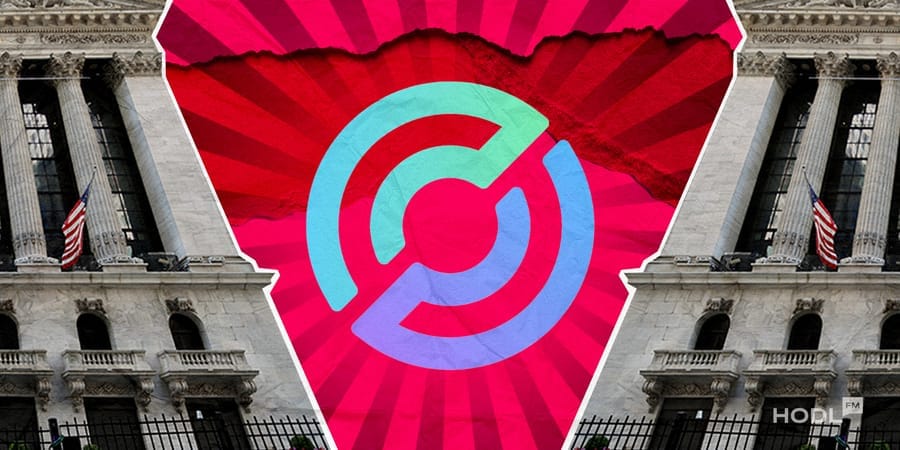Circle, the U.S.-based issuer of the USD Coin (USDC) stablecoin, has updated its terms of service to allow lawful firearm transactions, reversing a controversial policy that had banned the use of USDC for the purchase of “weapons of any kind.” The move follows criticism from gun rights advocates, conservative lawmakers, and industry groups who accused the company of engaging in financial discrimination.
Circle updates policy to align with legal standards
The reversal came to light after Americans for Tax Reform (ATR) and the National Shooting Sports Foundation (NSSF) flagged a clause in Circle’s previous terms of service that prohibited the use of USDC for firearm and ammunition transactions. The policy had gone largely unnoticed until ATR published an article on October 14 titled “You can’t buy a gun with Dem donor’s stablecoin.”
That report argued that Circle’s restriction on weapon-related transactions amounted to ideological censorship by a private company and linked it to broader concerns over payment firms determining which legal purchases consumers can make.
In response to the criticism, Circle confirmed last week that it had revised its terms.
“Circle has clarified our terms to reflect that USDC may be used for the lawful purchase and sale of firearms, as protected under the Second Amendment,” a company spokesperson told the NSSF. “We have not and will not deny the use of USDC for legally permissible transactions involving firearms.”
The update changes Circle’s policy from a categorical weapons ban to a legality-based standard, allowing any transaction deemed lawful under existing statutes.
Lawmakers hail a win against ‘financial weaponization’
The policy change sparked celebration among Republican lawmakers who view it as part of a broader fight against what they call “financial weaponization.”
“This is a reversal of Choke Point–inspired mechanisms to end run the legislative process and surreptitiously achieve liberal partisan goals,” said Sen. Bill Hagerty (R‑TN), author of the recently passed GENIUS Act, which established a federal framework for U.S. stablecoin issuers. “America will no longer stand for this weaponization of our financial system.”
Sen. Cynthia Lummis (R‑WY), co‑sponsor of the GENIUS Act, also praised Circle’s decision.
“Circle’s decision to allow legal purchases of firearms using its stablecoin takes a powerful stand against the discrimination targeting lawful gun owners,” she said. “By aligning its terms of service with existing legal requirements rather than imposing additional restrictions, Circle is defending our constitutional rights and ensuring our financial systems cannot be weaponized against law‑abiding gun owners and legal industries.”
Lummis’ comments echoed a recurring theme among conservative policymakers who have accused payment platforms and fintech companies of using compliance mechanisms to impose ideological bias on lawful industries.
Industry groups applaud faster response from Circle
The NSSF, which represents U.S. gun manufacturers, distributors, and retailers, applauded Circle’s quick reversal.
“NSSF appreciates the quick turnaround from Circle to state publicly and unequivocally that the company does not discriminate against lawful firearm commerce,” the group said, noting parallels between crypto’s challenges with financial exclusion and those long faced by the firearms industry.
The NSSF added that it would remain vigilant but welcomed the clarification as a sign that digital asset firms are attuned to concerns about ideological bias in the financial system.
Stablecoin issuer @circle prohibits legal firearm and ammunition purchases, while its CEO backs gun control advocates in Congress. Read more from @taxreformer on how political bias in crypto poses a threat to your 2A rights: https://t.co/3gUYWFXQzn https://t.co/H7KxgjCRoN
— NSSF—The Firearm Industry Trade Association (@NSSF) October 16, 2025
The ATR also framed the decision as a win for financial freedom, arguing that “freedom cannot survive if your financial tools are turned against you and your Second Amendment rights.”
Political and regulatory context
Circle’s reversal comes amid a rapidly evolving U.S. regulatory landscape for stablecoins and digital payments. The GENIUS Act, signed into law in July 2025, created national standards for dollar‑backed stablecoins, defining how private issuers may operate under federal oversight.
Analysts note that Circle’s shift likely reflects this new environment, where heightened scrutiny over debanking and financial access has pushed firms to reevaluate their policies. The decision also follows President Trump’s August executive order on “Guaranteeing Fair Banking for All Americans,” which directed regulators to prevent financial institutions from denying services based on political or lawful business activity.
Circle’s move could now set a precedent for other stablecoin issuers, especially as the total market capitalization of the sector exceeds $300 billion and traditional financial institutions increasingly explore their own token products.
Broader implications for digital finance
Kadan Stadelmann, Chief Technology Officer at Komodo, said the controversy highlights central tensions around centralized stablecoins.
“A private U.S. company cannot issue a neutral stablecoin, because they are beholden to American laws, regulations, and political policies,” he said. “Circle’s policy reversal suggests, in fact, that stablecoins are at the whims of politicians.”
While some see the update as a victory for lawful commerce, others argue it underscores the fragility of neutrality in the stablecoin sector, where access and censorship may be shaped by shifting political and regulatory pressures.
For Circle, however, the message is clear: USDC can now be used for lawful firearm transactions, and the company has no plans to stand in the way of legal commerce protected under U.S. law.

Disclaimer: All materials on this site are for informational purposes only. None of the material should be interpreted as investment advice. Please note that despite the nature of much of the material created and hosted on this website, HODL FM is not a financial reference resource, and the opinions of authors and other contributors are their own and should not be taken as financial advice. If you require advice. HODL FM strongly recommends contacting a qualified industry professional.





